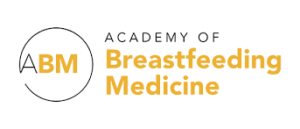
My Summer as a Research Assistant by Chandler Brock
My name is Chandler Brock and I am a rising junior studying Public Health with two minors in SLAMM and Spanish. This summer, I have had the privilege of working as a research assistant for Dr. Katherine Johnson, a professor in Tulane’s Department of Sociology. Upon receiving my acceptance into the Newcomb Institute Reproductive Rights and Reproductive Health Internship Program, I was overcome with happiness, enthusiasm, and, to be completely honest, anxiety. Prior to applying for the internship program, I knew next to nothing about reproductive rights and reproductive health and was unsure about my “usefulness” to Dr. Johnson’s project. However, I believe my lack of knowledge in these two fields allowed me to learn, question, and reflect on almost everything that was thrown my way, which has also shaped me into a better researcher, future healthcare provider, and reproductive justice advocate.
Kicking off the summer, I familiarized myself with the Section 7 Amendment to the Fair Labor Standards Act, one of the inspirations for Dr. Johnson’s research, which explores the attitudes and experiences of Black women in regards to breastfeeding. The Section 7 Amendment required employers with over 50 employees to provide both a reasonable amount of break time for breastfeeding employees to express milk during the day and a private, non-bathroom location for this to take place. This amendment was also the subject of a report she wrote that examined the amendment by focusing on Tulane University and provided recommendations on furthering the support of breastfeeding employees at Tulane.
Additionally, my main focus as a research assistant centered around a brief report that includes the attitudes and experiences of Black women in New Orleans around breastfeeding and lactation and ideas compiled from about 75 articles regarding racial and social barriers to breastfeeding (to be submitted to Breastfeeding Medicine, the official journal of the Academy of Breastfeeding Medicine). First, I read and edited transcripts of some of the interviews conducted, which included one of the lead architects of the lactation room in Mussafer Hall, working mothers with advanced degrees, working mothers with no more than a high school diploma or GED, and unemployed or stay-at-home mothers. Listening to and reading these women’s experiences and beliefs about breastfeeding astounded me, given the deep stigma within the Black community around breastfeeding and the various articles I’d previously read that support the notion that black women don’t breastfeed. However, these women, and many other women interviewed, did in fact breastfeed, despite a severe lack of education and knowledge about breastfeeding initially and several social and cultural barriers they had to overcome. Writing the brief report also meant using SPSS, a statistical analysis software created by IBM, for the first time. In SPSS, I coded and scrubbed data, ran syntax files, and, along with Excel, created the figures included in the brief report, which was incredibly daunting but also rewarding. Writing this report ultimately gave me the ability to hone my research writing skills, which was quite a new experience for me! Most, if not all, of the fundamentals of research were unfamiliar to me and I relied a lot on Dr. Johnson, YouTube, and my own educated guesses to try and understand it all. Through this internship, I’ve gained more independence in the realm of research, which will serve me well as I prepare to write an Honors Thesis during my final year of college, and an incredible wealth of knowledge about reproductive rights and health from my fellow cohort members, professors, guest speakers, and numerous Black mothers throughout New Orleans. I am excited to continue this work in the fall with Dr. Johnson and thank her, Dr. Clare Daniel, and Newcomb Institute for this amazing opportunity.
All the best, Chandler L. Brock
